“Why aren’t the cows on that pasture?” Kevin Shultz asks Charles Miller. It’s a warm October morning in Iowa on Charles’ regenerative organic dairy farm, and the plants are at least a foot tall.
Kevin Shultz, a member of the farm team at Kalona SuperNatural, has noticed that on the conventional dairy farm across the gravel road, a herd of cows is grazing on what resembles a golf course.
“I’m focused on soil health,” he says, “Have been for quite a while.”
Charles is an Amish dairy farmer in eastern Iowa that supplies milk to the organic regenerative dairy brand Kalona SuperNatural.
He, and many of his neighbors, have been working with the Kalona SuperNatural farm team to become Land to Market Verified, using the Savory Institute’s Holistic Management approach.
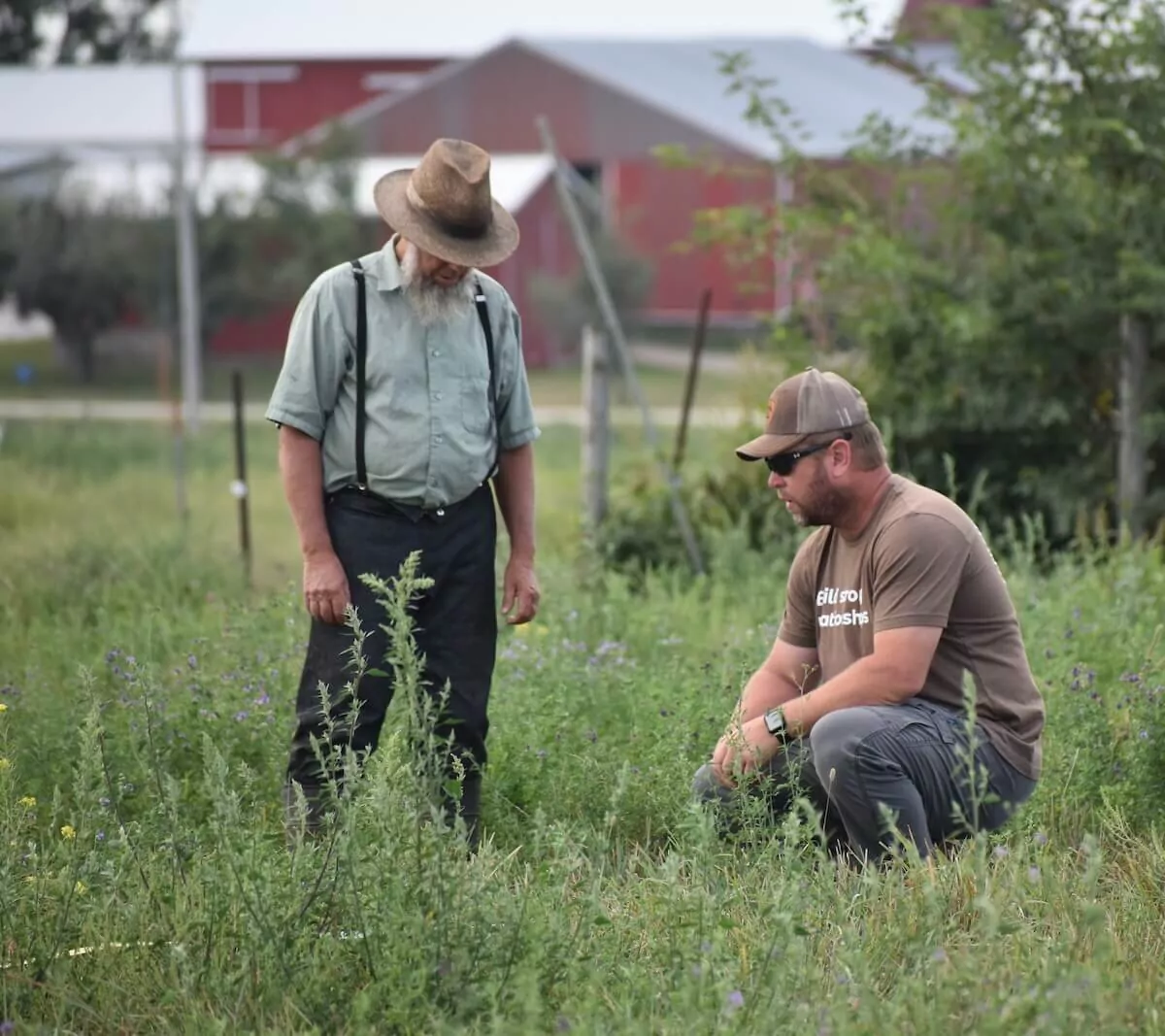
Charles and Kevin Shultz, a member of the Kalona SuperNatural farm team
“But why aren’t the cows grazing on that part of the pasture,” Cody Rasmus, another farm team member asks, a bit perplexed. “The cows across the road are out?”
“Oh, those guys ask me the same question,” Charles laughs.
Charles focuses on soil health because it determines plant growth and plant health, which are critical to dairy cow health and the amount of milk they produce.
Other dairy farms that allow their cows to overgraze their pastures see a decrease in cow health and milk volume over time, unless they buy large amounts of grain or hay.
Charles doesn’t do that. His cows are 100% grass-fed, his milk is USDA certified organic, and like other members of his Amish community, Charles sees himself as a steward of the natural environment.
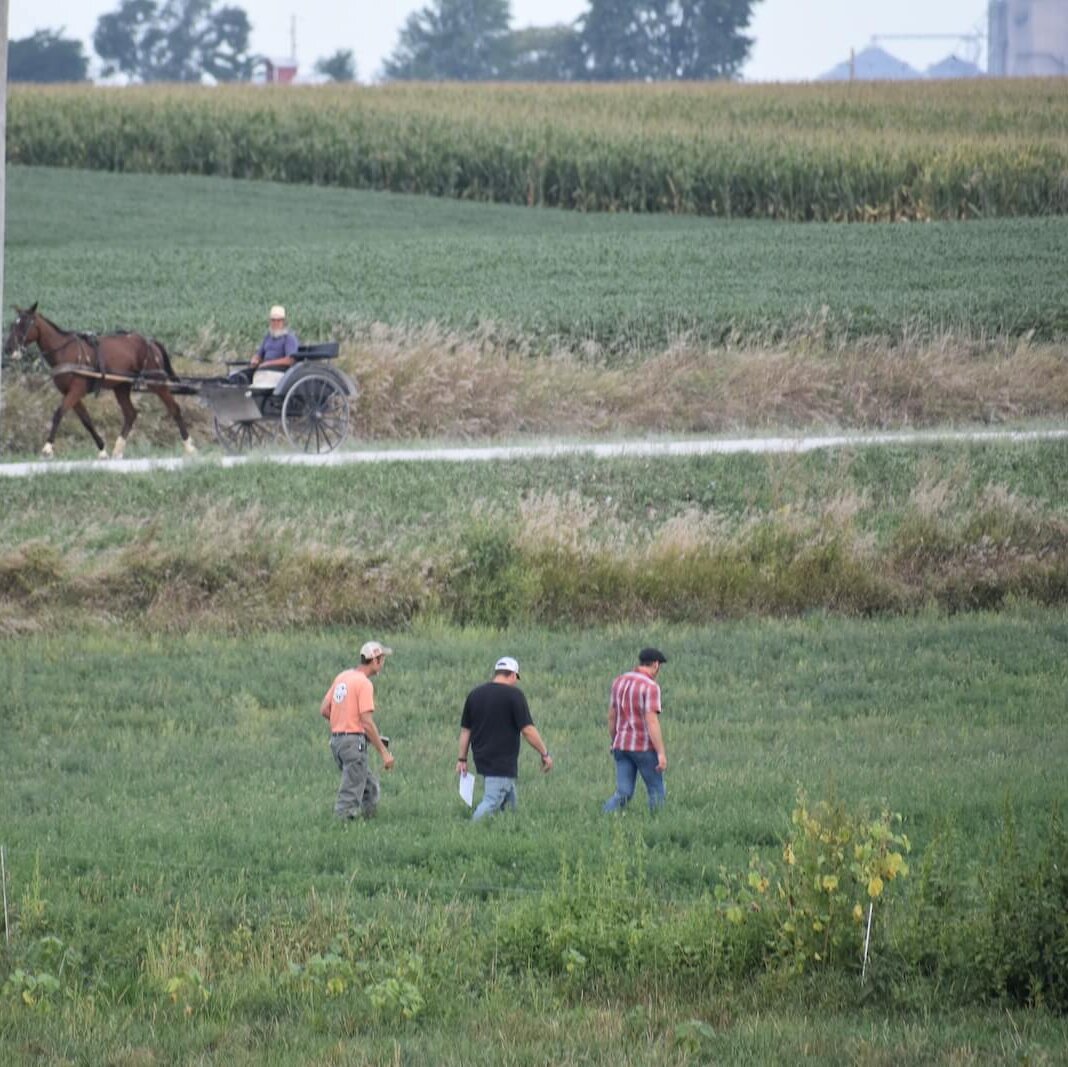
Phil, Cody, and Reuben walking regenerative pastures across the road from more conventional corn and soybean fields.
“We don’t use herbicides, pesticides, GMOs or anything like that,” Charles says, “We move the cows daily so they don’t overgraze any pasture. I won’t bring them back to that one until all the plants have fully recovered. That also gives a lot of different species the chance to grow and let their roots grow deep.”
Plant diversity and root depth are not only good for soil health and carbon storage, they are also good for rainwater infiltration rates.
We wander over to where Phil Forbes, the leader of the Kalona Regenerative Network (a Savory HUB) is doing Ecological Outcome Verification (EOV) testing. This testing shows whether ecological health – things like biodiversity, soil organic matter levels, and carbon storage – are increasing or decreasing over time.
“Looks pretty good,” says Phil, “When rain water can penetrate the soil faster, it doesn’t run off the pasture and carry topsoil with it. Farms can withstand droughts a lot longer too.”
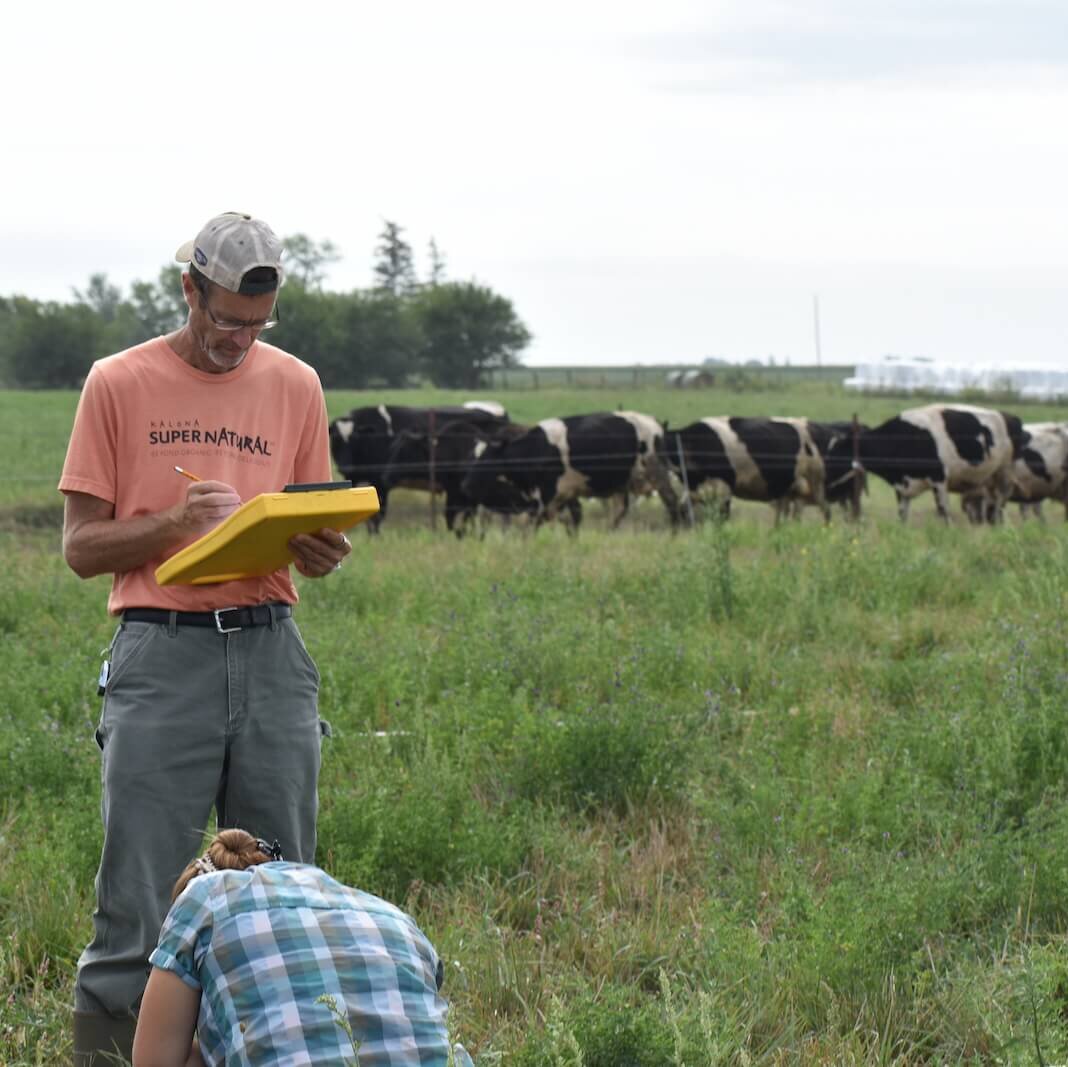
Phil Forbes of the Kalona Regenerative Network, a Savory Institute HUB, conducts Ecological Outcome Verification (EOV) testing.
In this part of Iowa, between 1 and 8 tons of topsoil per acre are lost per year to runoff. Most of it is polluted with chemicals and ends up contributing to the gulf of Mexico dead zone. With an increasing number of days over 90 degrees Fahrenheit every year, it’s very important that a lot of water is stored deep in the soil.
Kalona SuperNatural’s customer base (covering much of the continental US & Hawaii) includes many consumers concerned not just with their own health but with the health of our planet.
They are already concerned about chemical-based conventional agriculture. They prefer organic foods which, as one customer said, “at least isn’t poisoning the environment and our bodies.”
They may not understand all of the harmful effects of mono-culture farming but they are increasingly aware and concerned about the impact of the food they purchase on the environment. Effects such as current depletion of our topsoil, decreases in biodiversity, and extreme weather events. Some are even starting to draw a direct line between soil health (microbes) and gut health (microbes.)
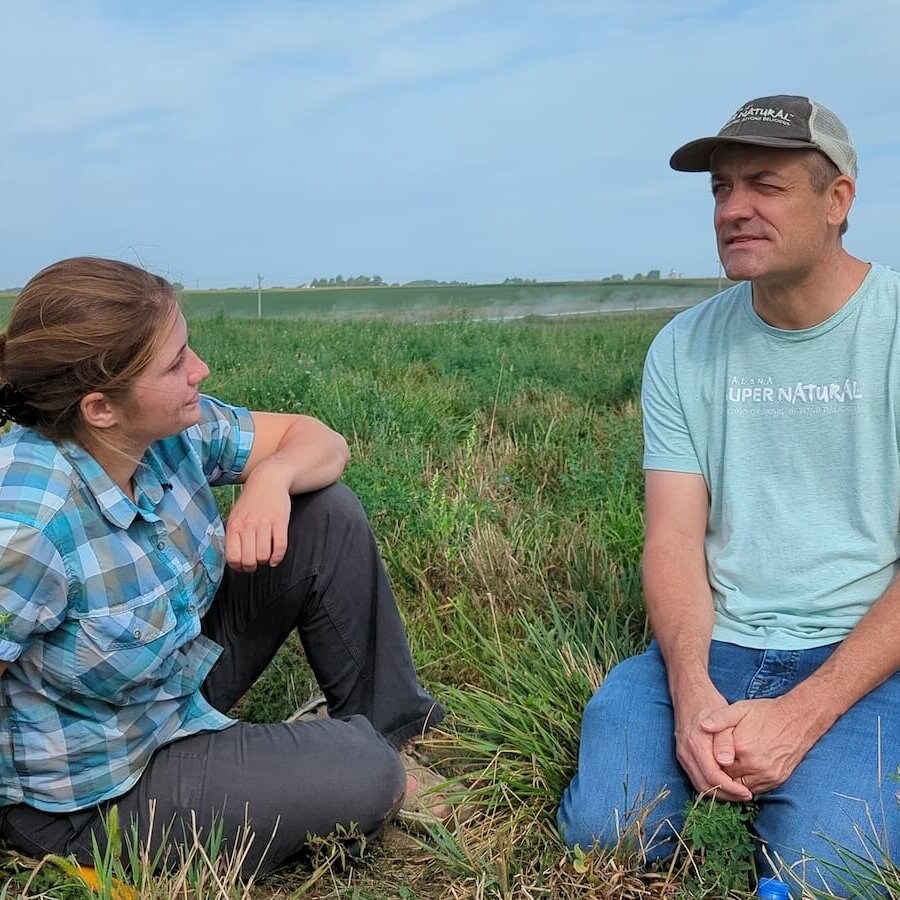
Sam Ingersoll thinks about regenerative agriculture a lot and it’s implications for the health of our families and planet.
It’s important for our customers that Kalona SuperNatural minimally-processed organic dairy AND the land the cows eat on are – as nature intended them to be.
Charles isn’t up on the latest Instagram influencer diet craze, but he’s sure about one thing, “If you take care of nature, nature will take care of you.”
The results speak for themselves.
Since focusing on soil health, the Soil Organic Matter content of his land has increased from 2.5% to 6%. Some of his pastures have 14 species of plants as opposed to just several. A one (1) inch increase in soil organic matter can store between seventeen (17) and twenty-five (25) more tons of water, and a lot of carbon dioxide pulled out of the air.
That’s a big deal for any farm, much less a dairy farm. Cows get blamed for contributing too much to global warming and sea level change – while clearly, managed correctly, “cows are a solution!”
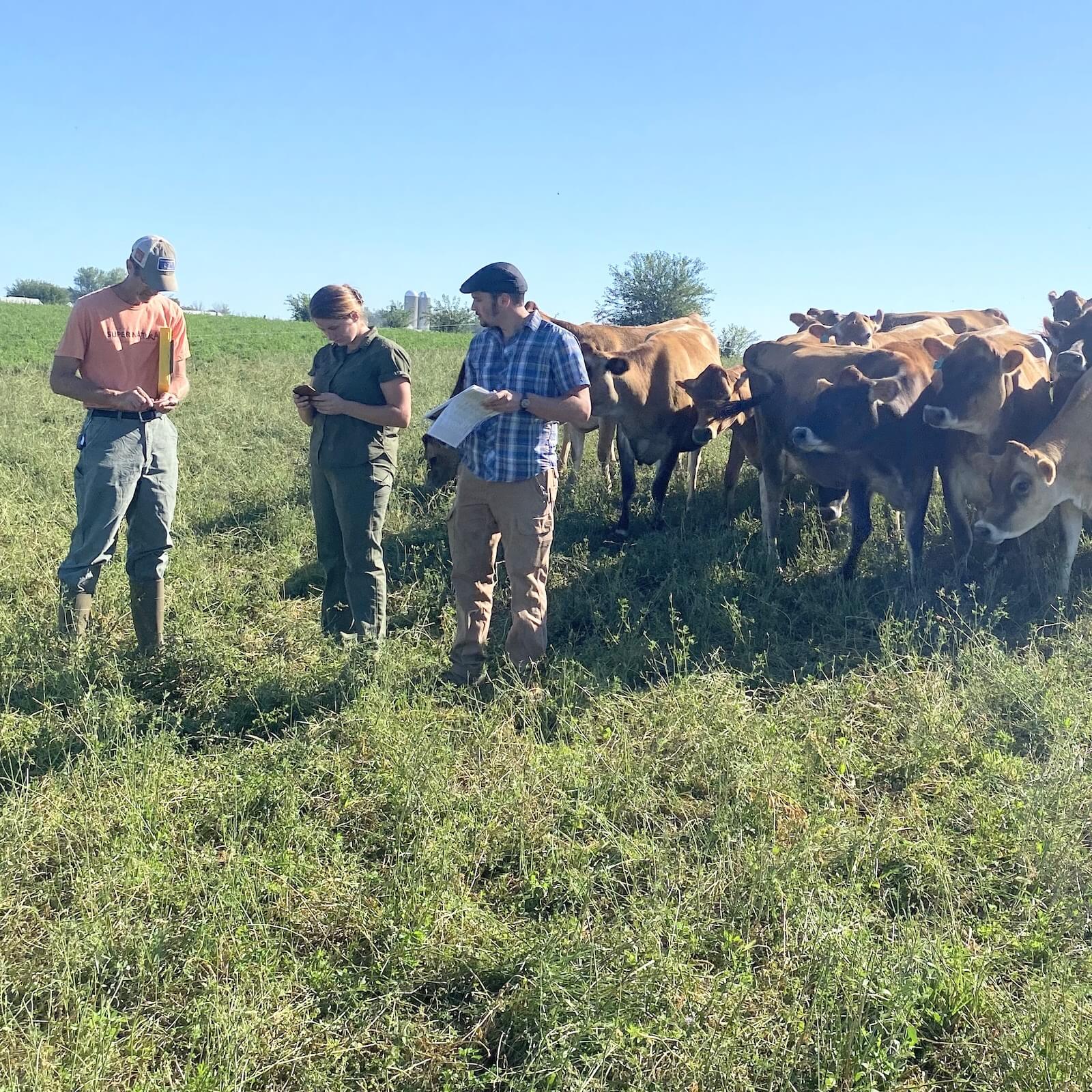
Managed Grazing
Cows are essential to restoring the biological function of soil, planet diversity, and water infiltration rates. The Jersey cows love to check out what we are doing.
As for Charles’ cows’ health and production?
Well, he says he ships 14,000 lbs of milk average per cow per year, while his neighbors produce only 10,000 – 11,000.
That’s a big difference since, “10,000 doesn’t really even pay the bills.”
As for the dairy farmer across the road, who’s cows have munched the pasture down to the ground…well a few minutes later he rolls up on a tractor and wants to know what Charles is doing.
He’s aware of Charles’ successes and would like to try a new approach to dairy farming and management of his land.
We are happy to show him.
There is hope for our farms, rural communities, and planet.
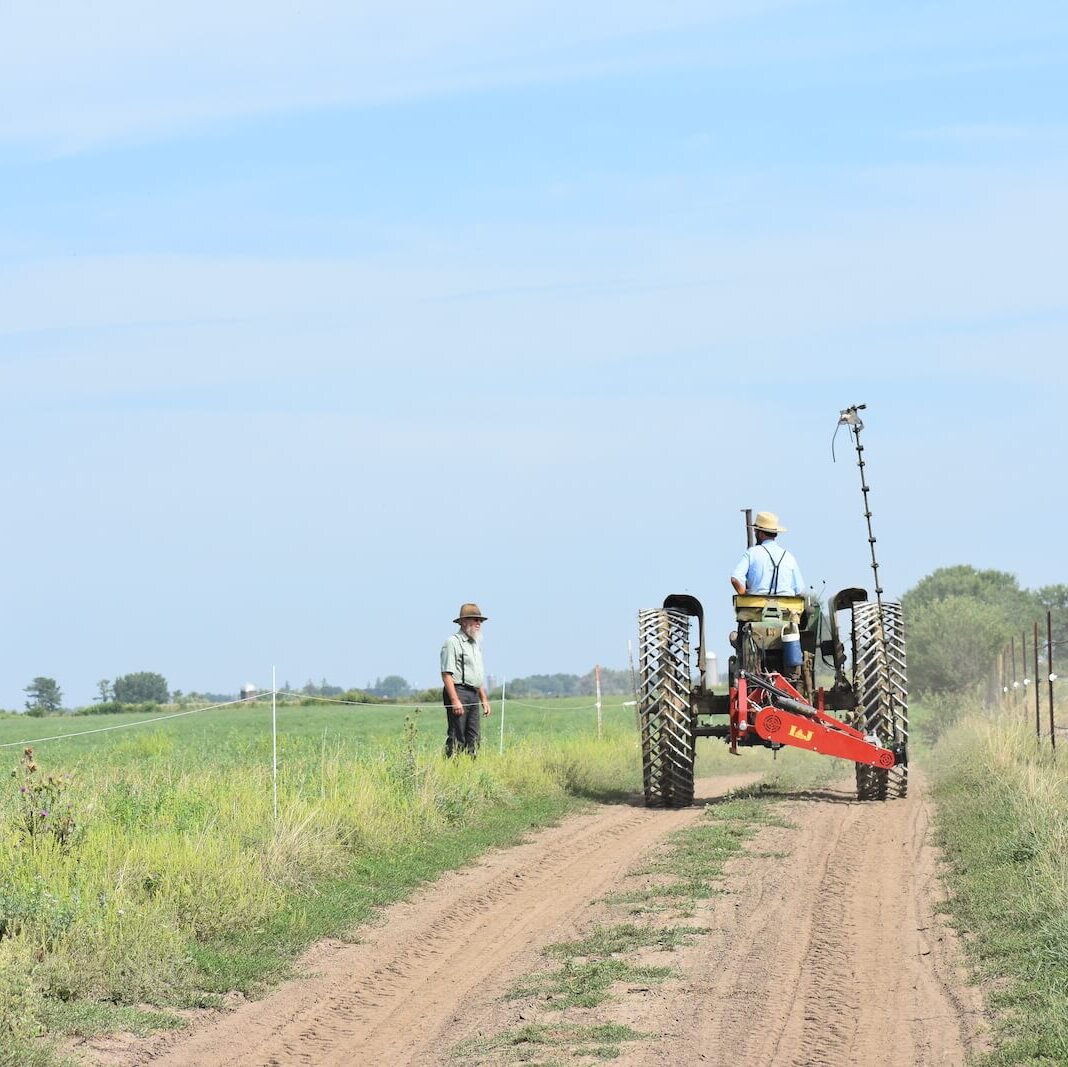
Charles neighbor is also curious about the pastures and why plants in them are growing so well.
And, here in Iowa, on a warm October morning, with methods developed in the African desert, the Savory Institute, an Amish farmer, and Kalona SuperNatural, are leading the way.
Kalona SuperNatural is an organic dairy company that provides milk, chocolate milk, buttermilk, whipping cream, half and half, kefir, yogurt, butter, cottage cheese, sour cream, and french onion dip to customers in 49 states. Many independent natural food stores and co-ops carry Kalona SuperNatural products, as do larger chains including Whole Foods, Sprouts Farmers Market, Natural Grocers, Hy-vee, H-E-B, Central Market, and Earth Fare with home delivery options through Instacart and Amazon Fresh.
Kalona SuperNatural’s mission is to inspire a passion for real food and the farms that produce it. The dairy, located in Kalona, Iowa, is highly regarded for sourcing organic milk from dozens of Amish and Mennonite small family farms and using as minimal processing as possible. Milk is pasteurized at the lowest-temperature allowed by law and is non-homogenized allowing the cream to rise naturally to the top.
Many Kalona SuperNatural farms are going through the Savory Institute’s Ecological Outcomes Verification (EOV) process to prove they are restoring ecosystem health. The brand expects to be Land to Market Verified in 2023.
Find Kalona SuperNatural Dairy Products in a Store Near You Request Products in a Store